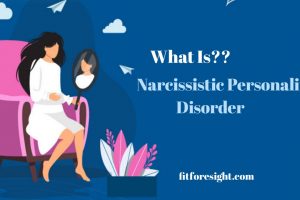Introduction
In today’s fast-paced world, mental health has become an increasingly important topic of discussion. People are beginning to recognize the significance of maintaining good mental well-being, and one crucial factor in achieving this is awareness. But why is awareness important for mental health? This article delves into the reasons behind the significance of awareness in nurturing and supporting our mental well-being.
Why is Awareness Important for Mental Health?
Awareness plays a vital role in promoting mental health by allowing individuals to recognize and understand their emotions, thoughts, and behaviors. It serves as a guiding light, helping individuals navigate their inner landscapes and make informed choices for their well-being. Here’s a closer look at why awareness is crucial for mental health:
- Recognizing Emotional Patterns: Awareness enables individuals to identify and acknowledge their emotions. By recognizing emotional patterns, individuals can gain valuable insights into their mental state, facilitating self-reflection and understanding.
- Understanding Triggers: When individuals are aware of their mental health, they can identify specific triggers that may lead to stress, anxiety, or other emotional disturbances. This knowledge empowers them to develop effective coping strategies and take proactive steps to mitigate the impact of these triggers.
- Promoting Self-Care: Mental health awareness helps individuals prioritize self-care. By being aware of their needs, limitations, and boundaries, individuals can engage in activities that promote well-being, such as practicing mindfulness, maintaining a balanced lifestyle, and seeking support when necessary.
- Breaking Stigma: Awareness fosters a climate of understanding and empathy, challenging the stigma associated with mental health issues. When people are aware of the prevalence and importance of mental health, they are more likely to offer support and create a supportive environment for those struggling with mental health challenges.
- Seeking Help: Being aware of one’s mental health can encourage individuals to seek professional help when needed. It reduces barriers to accessing mental health services and facilitates early intervention, leading to better treatment outcomes.
- Building Resilience: Awareness equips individuals with the knowledge and skills needed to build resilience. By understanding their mental health and adopting healthy coping mechanisms, individuals can better navigate difficult times and bounce back from setbacks.
FAQs about Mental Health Awareness
1. What is mental health awareness?
Mental health awareness refers to having knowledge and understanding about mental health conditions, their impact, and the importance of seeking support and treatment. It involves recognizing the signs and symptoms of mental health challenges and promoting a culture of empathy, acceptance, and education.
2. How does awareness impact mental health stigma?
Awareness plays a crucial role in challenging and breaking the stigma surrounding mental health. By raising awareness, we can promote understanding, empathy, and acceptance, which helps create an environment where individuals feel safe and supported in seeking help and talking openly about their mental health.
3. Can improving awareness prevent mental health issues?
While awareness alone cannot prevent all mental health issues, it can contribute to early intervention, better management of symptoms, and improved overall well-being. By recognizing the signs of mental health challenges and promoting self-care, awareness can reduce the risk of certain issues becoming more severe.
4. How can I increase my mental health awareness?
To increase your mental health awareness, consider the following steps:
- Educate yourself about different mental health conditions and their symptoms.
- Engage in open conversations about mental health with friends, family, and colleagues.
- Seek out reliable sources of information and resources related to mental health.

























Useful information.